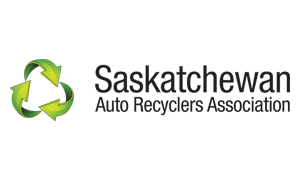The auto recycling industry across Canada plays a significant part in the end-of-life vehicle process, depolluting cars in an environmentally responsible manner and getting parts ready for their next cycle.
The Ontario Automotive Recyclers Association (OARA) has been working with the Ontario Ministry of the Environment (MOE) on a new policy that would regulate the auto recycling industry in the province.
The new policy, which is in the consultation stage, would require all end-of- life vehicles (ELV) to be depolluted prior to crushing, all ELV processing sites to register with the government and all ELVs would require a notice confirming depollution when shipped from a recycler to a crusher and on to a shredder. The proposal would be phased in over two years.
“Without a lot of clear laws and oversight, scrap vehicles – the target for our inventory – flow to the lowest common denominator,” says Fletcher. As a result, someone who does the least amount of work on a vehicle has an economic advantage.
These businesses can outbid responsible businesses because they may not necessarily pay taxes or have employees and don’t collect fuel, oil, mercury or ozone from the vehicle.
In many cases, some of these businesses consist only of a person with a cell phone. According to Fletcher, up to one-third of the businesses in Ontario that say they recycle vehicles don’t have a physical address.
“The government is not saying you can no longer be in that business, they’re just saying ‘we want to know who you are and where you’re doing all these things you say you’re doing’.”
The policy would require cars to be depolluted before being crushed or shredded.
Fletcher says it’s difficult to educate the public on the subject and have them realize that their car needs to be handled properly and responsibly when someone can offer them an extra hundred dollars for their car because they’re only going to remove a few high value parts and crush the rest.
“The crusher or shredder has no way of knowing,” he says. “They can only assume that the business has done what they’ve said they’ve done to a car, with no real oversight.”
The proposal would make it illegal to crush or shred a vehicle that hasn’t been depolluted, ensuring accountabil- ity throughout the entire ELV chain.
The auto recycling industry in Canada is largely self-policing as members of the Automotive Recyclers of Canada voluntarily abide by the Canadian Automotive Recyclers Environmental Code.
“That’s what the MOE used as a base to figure out what we need to ensure that everyone who touches an end-of-life vehicle goes through the same procedures,” says Fletcher.
Most of the regulatory activity in Canada exists at a provincial level, and Ontario is taking a big step forward in modernizing the state of the industry.
“Our members are ELV savvy… and we like to think they’re ahead of the curve,” says Fletcher. “They’ve demonstrated that it’s a reasonable standard.”
by Heather Rose, Collision Management Magazine
The post OARA working with the Ministry of Environment: Regulation heading our way? appeared first on Automotive Recyclers of Canada.
